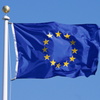"The G7 Summit sends out a strong, joint signal in the area of health"
The G7 Heads of State and Government have adopted joint measures to combat antibiotic resistance and have drawn lessons from the Ebola crisis.
It is good that, at the G7 Summit, we were able to send out a strong joint signal with respect to combating antibiotic resistance and epidemics. In the recent past, Ebola quite dramatically demonstrated that disease is never very far away. This is why it is important that the G7 States now jointly and resolutely draw the lessons to be learned from the Ebola crisis. We need better global crisis management, also in the area of health. What is extremely important is that the local healthcare systems are strengthened in such a way that they are better equipped to cope with future epidemics. Disease knows no borders, and the same applies to treatments. How much longer our antibiotics will continue to be effective, also largely depends on how they are being used worldwide. Already today, 700,000 people die worldwide, every year, as a result of antibiotic resistance. If antibiotics were to stop working, one of the supporting pillars of our health care system would collapse. It is therefore imperative that proper use is made of antibiotics in human medicine and in agriculture, even as research efforts are being strengthened. In the wake of the G7 Summit, further steps must follow. I have invited the G7 Health Ministers to Berlin at the beginning of October, so that we can discuss how to move forward in the area of health.
Antibiotic Resistance
In the afternoon of 8th June, the G7 States adopted a Summit Declaration (including an Annex). In this declaration, they clearly affirm their position as strong partners in the fight against antibiotic resistance and support the Global Action Plan adopted by the World Health Organisation (WHO). Proper use of antibiotics, both in human medicine and in agriculture is absolutely necessary so as to avoid the development of resistance. The Heads of State and Government of the leading G7 States therefore advocate that antibiotics be administered subsequent to individual diagnosis and for therapeutic purposes. They attach great importance to the mandatory prescription requirement in human medicine as well as to an analogous procedure in veterinary medicine.
Lessons from the Ebola crisis
The Heads of State and Government also discussed the lessons that the international community can learn from the Ebola crisis so as to be better prepared to cope with future epidemics. Of central importance is the strengthening of health care systems and the implementation of the World Health Organisation's International Health Regulations (IHR). The G7 states wish to provide support for 60 countries, including those of West Africa. Furthermore, an international pool of multidisciplinary experts, who can intervene rapidly in case of a crisis, is to be created. WHO is the key partner for this purpose.
Neglected tropical diseases
The third health topic discussed by the Heads of State and Government was measures to combat neglected tropical diseases. In this area, they agreed to improve the co-ordination of research activities.
Future prospects: Meeting of the G7 Health Ministers
The meeting of the G7 Health Ministers will take place at the invitation of the Federal Minister of Health Hermann Gröhe from 8th to 9th October, 2015.
Additional information
-
G7 Presidency
Overview page on the German G7 Presidency
-
Antimicrobial resistance
Article about antimicrobial resistance
-
Global Health Policy
Article about global health policy
-
International Co-operation
Overview page about co-operation in the field of international health policy
































